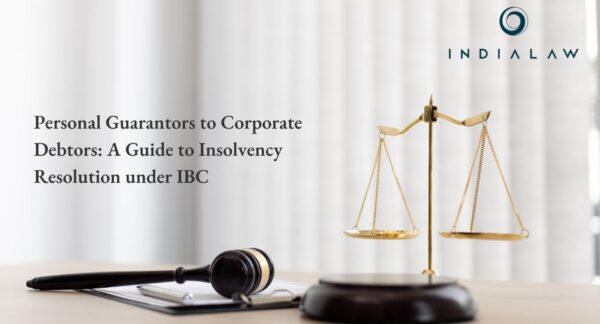Construction of Repugnant Clauses in a Will


The Hon’ble Supreme Court in a recent judgement in Madhuri Ghosh v. Debobrotto Dutta C.A. No. 10742/2016 held that: when in a will, a testator has bequeathed his absolute interest in the property in favour of his wife, any subsequent bequest in the same will which is repugnant to the first bequeath would be invalid.
Facts of the case:-
By a registered Will dated 21st January, 2000, the Appellant’s husband bequeathed a House to the Appellant and his elder daughter jointly. He went on to state in the aforesaid Will that after the death of the Appellant and his elder daughter, various other lineal descendants would become owners of specified parts of the House. Since the bone of contention revolved around the correct construction of this Will, paragraphs 2 and 4 of the Will made by the Appellant are set out herein:
“2. That house no.77, Ram Bagh, Allahabad was inherited by me from my mother Smt. Subodh Bala Ghose vide registered Will dated 27.2.83 and I am the absolute owner of said immovable property. So long as I am alive I shall be the exclusive owner of the said property and after my death my said house no.77, Ram Bagh, Allahabad shall vest on my wife Smt. Madhuri Ghose and my elder daughter Sunanda Ghose jointly. After the death of my wife Smt. Madhuri Ghose, my daughter Km. Sunanda Ghose shall become the exclusive owner of the said house property no.77, Ram Bagh, Allahabad. In case Km. Sunanda Ghose predeceases my wife Smt. Madhuri Ghose, then Smt. Madhuri Ghose shall become the exclusive owner of the said house property No.77, Ram Bagh, Allahabad. The ownership of my Ambassadar Car No.UPD 2575 shall pass on to my wife Smt. Madhuri Ghose.”
“4. That after the death of my wife Smt. Madhuri Ghose and my daughter Km. Sunanda Gosh, my grandson Indranil Chaudhary son of Amit Chaudhary R/o AE-232, Sector Salt Lake City Calcutta shall become the owner of the ground floor of house no.77, Ram Bagh, Allahabad and he shall be exclusive owner of the said portion and my granddaughter Km. Mohana Chaudhary d/o Amit Chaudhary r/o AE-232, Sector Salt Lake City Calcutta shall become the exclusive owner of second floor of house No.77, Ram Bagh, Allahabad and my grandson Devopriyo Dutta s/o Devobrito Dutto r/o 77, Ram Bagh, Allahabad shall become the owner of Ist floor of house no.77, Ram Bagh, Allahabad and none else shall have any right or title on the said house.”
The Appellant’s husband died on 18th June, 2001. The Appellant and elder daughter filed Suit No.747/2001 before the Additional Civil Judge, Senior Division, Allahabad in which it was claimed that the Appellants be declared as joint owners of one half of House by virtue of the Will dated 21st January, 2000. There was no dispute in respect of the other half of the House as it was already bequeathed to the Appellant by the mother of the Appellant’s husband.
Stages of litigation
The trial Court found that only a life interest was created in the said House in favour of the Appellant and the elder daughter. The first Appellate Court found that in view of the unequivocal language of the said Will, an absolute interest was created in favour of the Appellants. The first appellate Court therefore set aside the judgment given by the Trial Court. The High Court while hearing the Second Appeal opined that only a life interest was created by the Will in favour of the Appellants and hence the judgement of the Trial Court was reinstated.
Question of law before the Hon’ble Supreme Court
The Hon’ble Supreme Court had to interpret the construction of two clauses(namely paragraphs 2 and 4 elucidated above) of the Will, which are repugnant to each other, in terms of whether absolute interest or only a life interest was created in favour of the Appellants.
Arguments
- The Counsel for the Appellant argued that a Will must first be read as a whole, and if various parts of it appear to conflict with each other, they ought to be harmoniously construed. In the event that this cannot be done, then if there is an absolute bequest in an earlier part of the Will, which cannot be reconciled with a subsequent bequest of the same property in a latter part of the Will, the subsequent portion of the Will have to be declared as invalid.
- Learned counsel for the Respondents argued that the Will must be read as a whole and harmoniously construed. He further argued that it was the intention of the testator not only to bequeath the property to the Appellant and the elder daughter but also to his grand children i.e. the son and the daughter of the second daughter and the son of a nephew who was treated as a grandson. If therefore, the Will was to be looked as a whole, it was clear that the testator’s wish would not be carried out qua the latter beneficiaries, and every effort should be made to see that the testator’s intention was carried out as a whole.
Analysis /Conclusion given by the Hon’ble Supreme Court:–
- The Hon’ble Supreme Court opined that on a reading of paragraph 2 of the said Will the testator had chosen his language very carefully. He made it clear that after his death, the House shall “vest” on the Appellant and his elder daughter. With this declaration, the Appellant’s further stated that after the death of the Appellant, the said daughter shall become the “exclusive” owner of the House and that if his daughter was to predecease the Appellant, then the Appellant shall become the “exclusive” owner.
- The Hon’ble Supreme Court held that a reading of those paragraph left no manner of doubt that, what was granted jointly in favour of the Appellant and the elder daughter was an absolute right to the House.
- The Supreme Court held that, where an absolute bequest has been made in respect of certain property to certain persons, then a subsequent bequest made qua the same property later in the same Will to other persons will be of no effect. The Hon’ble Supreme Court allowed the appeal filed by the Appellants and the judgement of the High Court was set aside.




